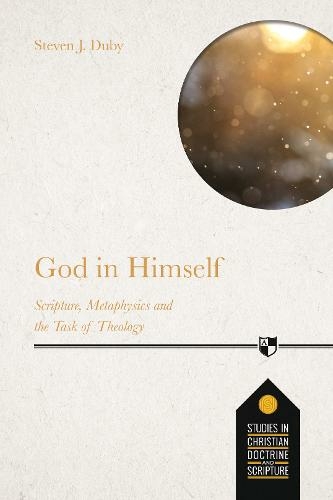
How do we know God? Can we know God as he is in himself?
These longstanding questions have been addressed by Christian theologians throughout the church's history. Some, such as Thomas Aquinas, have argued that we know God through both natural and supernatural revelation, while others, especially Karl Barth, have argued that we know God only on the basis of the incarnation. Contemporary discussions of these issues sometimes give the impression that we have to choose between a speculative doctrine of God driven by natural theology or metaphysics and a Christ-centreed doctrine of God driven by God's work in the history of salvation.
In this volume in the Studies in Christian Doctrine and Scripture series, Steven J. Duby casts a vision for integrating natural theology, the incarnation and metaphysics in a Christian description of God in himself. In addition to reasoning from Holy Scripture, Duby incorporates insights from the catholic theological tradition, including patristic and medieval authors and also the Reformed orthodox.
These longstanding questions have been addressed by Christian theologians throughout the church's history. Some, such as Thomas Aquinas, have argued that we know God through both natural and supernatural revelation, while others, especially Karl Barth, have argued that we know God only on the basis of the incarnation. Contemporary discussions of these issues sometimes give the impression that we have to choose between a speculative doctrine of God driven by natural theology or metaphysics and a Christ-centreed doctrine of God driven by God's work in the history of salvation.
In this volume in the Studies in Christian Doctrine and Scripture series, Steven J. Duby casts a vision for integrating natural theology, the incarnation and metaphysics in a Christian description of God in himself. In addition to reasoning from Holy Scripture, Duby incorporates insights from the catholic theological tradition, including patristic and medieval authors and also the Reformed orthodox.



